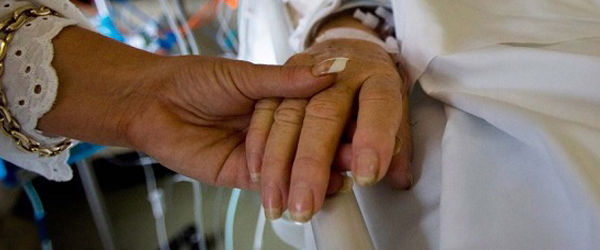As the 20th century came to a close, the United Nations celebrated the International Year of Older Persons, heralding the vision of “A Society for All Ages.” The first years of the new millennium have been anything but that, with the abandonment of frail seniors during natural disasters from Louisiana to Japan, the legalization of assisted suicide in several U.S. states and foreign countries, and political rhetoric that seems to consider the growing population of seniors as nothing but a problem to be solved. Is this the society for all ages we envisioned in 1999?During October each year, the Catholic Church in America observes Respect Life Month. It is a good time to reflect on the elderly — before it is too late. In light of recent political and cultural trends, we would do well to ask ourselves what has happened to filial piety — a virtue common to the Jewish and Christian Scriptures as well as many traditional cultures — by which we respect our elders and assure them proper care and attention? As we lament the diminution of benefits to seniors, we may be tempted to think that the elderly are solely government’s responsibility and not our own. The care of our elders, however, is really not an act of philanthropy, but the repayment of a debt of gratitude on the part of each of us toward our parents, grandparents and other elders in our community.We should look upon each elderly person as if they were our own parent. We should see ourselves in them and remember the Golden Rule — for we too will be old one day, if we are so blessed.Is it too late to recapture a sense of solidarity? We should look upon each elderly person as if they were our own parent. We should see ourselves in them and remember the Golden Rule — for we too will be old one day, if we are so blessed. Above all we need to look upon the elderly the way God sees them — as persons imbued with inviolable dignity, and thus worthy of respect and care — simply because they have been made in the divine image.That is what our foundress, St. Jeanne Jugan, did. She launched her mission of hospitality to the elderly poor at a moment in history when there were no social services for the homeless, when those who were deemed useless or undesirable were cast aside and left in the streets to fend for themselves. Jeanne Jugan saw each abandoned elderly person as her mother or father and a child of God worthy of care — not as a burden to society or the responsibility of government alone.As Little Sisters of the Poor, we are committed to the accompaniment and care of the needy elderly regardless of race, nationality or religion. We are caregivers — not politicians or policy makers. But we do know that caring for the elderly poor is growing more difficult because of funding cuts, a chronic shortage of qualified care givers, and the attitudes of a society becoming increasingly callous with regard to the sacredness of human life.While there is a laudable trend toward home and community-based services, their financing and availability are limited. Needy seniors and those in medically underserved areas continue to have few options. Assisted living facilities offer an attractive alternative to traditional nursing homes for those who can afford to pay their own way, but they are not universally funded by Medicaid. Although skilled nursing facilities continue to be the only option for many poor, minority and urban seniors, many have been forced to close as Medicaid reimbursement levels drop. We realize that no one dreams of spending their last days in a nursing home. But we also believe that nursing home placement will remain the best option for some seniors because of chronic, complex health care needs or a lack of available support in the community. We are committed to being there, as our foundress was, to offer a home, love and respect to the needy elderly.If the most vulnerable members of our society are to receive the care they deserve as persons created in God’s image, two approaches are necessary. First, the care of needy seniors must be financed at more appropriate levels, along with programs creating incentives for the training and retention of qualified caregivers. More importantly, each of us needs to rouse in our own hearts the virtues of filial piety and solidarity that will lead us to support and cherish the elders in our family and community not as a burden, but a blessing.Sister Constance Carolyn Veit is director of communications for the Little Sisters of the Poor in the U.S. For information on the Little Sisters of the Poor in Los Angeles, call (310) 548-0625 or visit www.lspsocal.org.

